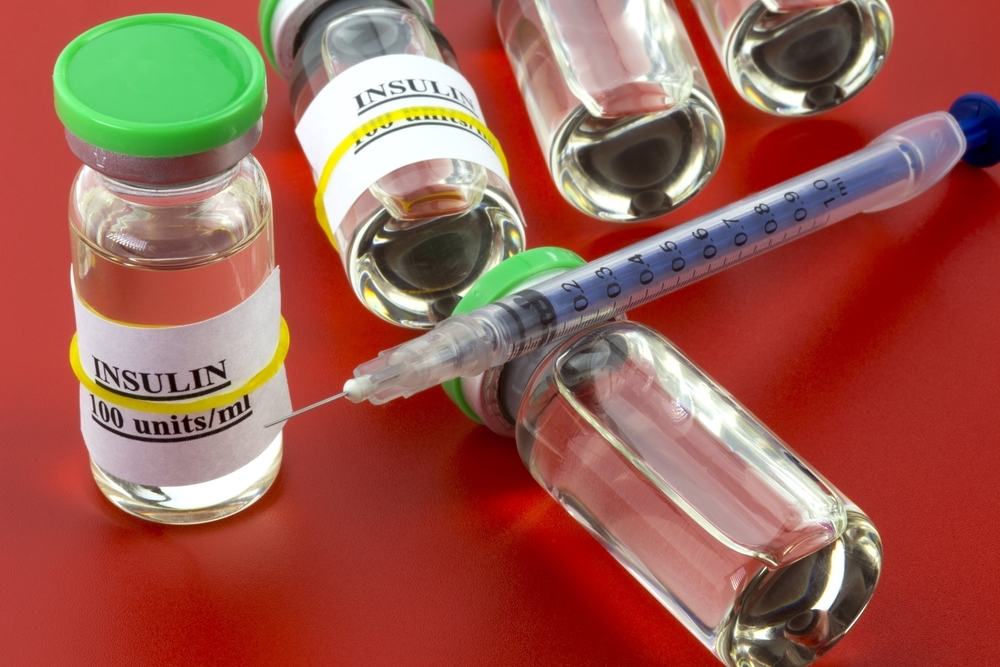Contents:
- Medical Video: A Guide to Using Your Insulin Pen
- Insulin is a hormone that regulates blood sugar
- Guide how to use the correct insulin
- 1. Make sure the injection method is correct
- 2. Injecting insulin is not just in one place
- 3. Don't forget to replace your syringe
- 4. Inject insulin just in time
- 5. Saving insulin can't be careless
- 6. Note the expiration date
Medical Video: A Guide to Using Your Insulin Pen
Insulin is a medical drug that must be routinely used to manage diabetes, both of which type 1 and type 2.It is important for you insulin users to know how to use insulin properly and correctly, because using inappropriate insulin can cause complications that can threaten life-threatening hypoglycemia.
Insulin is a hormone that regulates blood sugar
Insulin is a hormone produced by the pancreas. Insulin allows the body to use glucose as energy. Glucose is a type of sugar found in many carbohydrate-based foods. After eating, the digestive system breaks down and converts carbohydrates to glucose. After releasing glucose into the bloodstream, insulin helps cells throughout the body to absorb glucose and use it as energy. In the absence of insulin, the cells of our body will starve even in the blood filled with sugar.
Insulin also plays a key role in balancing blood glucose levels. When too much glucose in the bloodstream, insulin signals the body to store the excess sugar in the liver (liver). This sugar is not released until your blood sugar drops, such as between meals or at times of stress when your body needs additional energy boost.
Guide how to use the correct insulin
1. Make sure the injection method is correct
The correct way to use insulin can determine the development of your bad condition. Insulin is a drug that is injected under the skin, so you have to pinch the surface of your skin so that the syringe does not go too deep into the muscle. The angle of injection must also be right, which is perpendicular to the cubit of the surface of the skin.
2. Injecting insulin is not just in one place
Some common locations for injecting insulin are in the abdomen around the navel to the side of the waist, both arms over the outside, and the outer thighs. Injected insulin has the effect of breaking fat, so every injection of insulin you have to rotate the injection site to prevent the breakdown of fat in only the same place.
3. Don't forget to replace your syringe
Whether using an insulin pen or a syringe, it should only be used once using the needle. Even so, the needle can be used 2-3 times by the same patient as long as the cleanliness of the device is kept tight.
4. Inject insulin just in time
Each type of insulin has its own working time so you have to understand the type of insulin you are using well. Based on the time of work, insulin is divided into 5 types:
- Fast work insulin
- Short-acting insulin
- Medium work insulin
- Long working insulin
- Ultra long work insulin
Short-acting insulin will start working after being injected within 30-60 minutes, while working insulin will quickly work within 5-15 minutes. Basically, both types of insulin are used to reduce blood sugar levels after eating or also called prandial insulin. Therefore, food must be available within range to prevent complications of hypoglycemia if you use fast or short-acting insulin.
5. Saving insulin can't be careless
Unopened insulin must be stored in a refrigerator with temperatures between 2 to 8ºC. As long as the packaging has not been opened, the insulin can last until the expiration date ends. Make sure your insulin is not stored until it freezes or in a place that is too hot (more than 30ºC), such as being left in the car in hot weather. If the cycle does not allow you to store insulin in the refrigerator, then unopened insulin can be stored at room temperature but can only be used for up to 28 days.
While insulin that has been opened can be stored at room temperature with a time limit of up to 28 days. Opened insulin is not recommended to be stored in the refrigerator.
6. Note the expiration date
Never forget to check the drug expiration date when you want to use new unopened insulin. Even though not all insulin that has passed the expiration date will be damaged, the use of expired drugs can put you at risk of hyperglycemia due to insulin that is no longer working.












